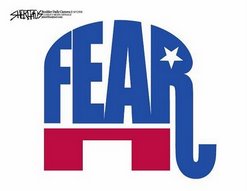Just why did my ancestor enlist to fight in the Confederate Army? He was no slaveholder. It's doubtful that he knew any slaveholders. Slave owners were quite actually few and far between in those days preceding the civil war, the war between the states. The (by far) vast majority of Confederate soldiers were no friend of slavery, nor friend to any who did not work his land with his own hands. My ancestors were hard working, self sufficient Irish, Scottish, and Scotch-Irish (there is a difference in all) and descendants of the Cavaliers, who had made a rough life in the Blue Ridge Mountains. They were no plantation owners, rather intermarried with the Cherokees and Catawbas, and no doubt took every man, black or white, at face value.
So, why? I know what I've been told all my life. States rights. Independence from the tyranny, oppression and invasion of the South by the Northern states. However, I've been subjected to the history which is, after all, always written by the victors.
I've also been peeved by the mold that some Democrats are trying to cast the South in, just because Republicans have been winning down here, often by margins of only around 10%. They are trying, for one thing, to cast us all as being racists, and apparently as being the last bastion of it. Which is pure, unadulterated bullshit. It's just not true. Southerners are no more prejudiced than other parts of the country and in many ways, less so, in that blacks and whites have led lives more intertwined and closer in the South than in most all the rest of the country. Are there Southern racists? Most definitely. But, I've lived in the west and I've spent a great deal of time in New York and New Jersey, and I'm telling you now that there is more racism there than in the most redneck areas of the South. Heck, one of the most rural, and redneck areas of upper South Carolina has a black mayor and in my town, the reddest of red SC, we have had a black Chief of Police since, like, forever, okay? (There, I'm using my Southern California valley girl accent.)
Anyway, I've found some interesting information about the civil war. Below are some interesting links that have educated me and should educate everyone. It is all in reference to "The Real Lincoln: A New Look at Abraham Lincoln, His Agenda, and an Unnecessary War, a biography of Abraham Lincoln written by Loyola College economics professor Thomas DiLorenzo in 2002. It seems to have garnered much praise from libertarians, but criticized by Claremont Institute scholar Ken Masugi in the conservative National Review. Richard Gamble in Independent Review states that "The Real Lincoln... seriously compromised by careless errors of fact... is essentially correct in every charge it makes against Lincoln, making it all the more frustrating to the sympathetic reader." (Via Wikipedia) It has recently been reissued and addressed the careless errors. After all, the writer was not an historian (we tend to be very nitpicky about historical facts... I used to be when I could remember todays date longer than a milisecond), but an economist.
Americans celebrate Abraham Lincoln's Gettysburg Address, but H.L. Mencken correctly evaluated the speech, "It is poetry not logic; beauty, not sense." Lincoln said that the soldiers sacrificed their lives "to the cause of self-determination - government of the people, by the people, for the people should not perish from the earth." Mencken says, "It is difficult to imagine anything more untrue. The Union soldiers in the battle actually fought against self-determination; it was the Confederates who fought for the right of people to govern themselves."
Unfortunately, the following is on WorldNetDaily, which appears to be a solidly wingnut site, and I don't care for some comments about Clinton, but the interview was very interesting, nonetheless.
I think the Whig Party was the party of empire. I think the Whigs, as well as the Republican Party, wanted to change government's role as a defender of individual liberty. I don't think the Republican Party was especially interested in the welfare of the black slaves in the South. They wanted the empire to be financed with high tariffs to protect Northern manufacturers, mostly, and Lincoln was a career-long protectionist.
....
Consider this: The tariff was the main source of federal revenue, and since the South was so dependent on importing things – they didn't manufacture much – they were paying about 80 percent or more of all federal tariff revenue. They had been complaining for decades that most of the money was being spent up in the North, although the South was paying almost all of it, and that's when the rate was 15 percent. The Republicans came in and said they were going to triple the extent to which the South was taxed and raised the rate to 47 percent. In his first inaugural address, Lincoln said, "It is my duty to collect all the duties and revenues and tariffs and save so that there will be no invasion."
Imagine an American president saying it's his duty to collect the taxes, and as long as you pay the taxes, he will not send the Army down there to shoot you. That's a pretty bold thing. But if you read the first inaugural, it's right there in black and white.
Certainly today's Americans need to know more about presidents like George Washington and Thomas Jefferson and their thoughts on public-policy matters. They are lost completely, however, when it is all turned into an excuse for a minivacation.
Abraham Lincoln's birthday was also merged into this generic holiday, and his life, too, is important for Americans to study. Washington and Jefferson created the republic; Lincoln destroyed it. Scholars are at last beginning to dig out the real Lincoln from the layers of deification that were created by cynical men who, while he lived, had habitually referred to him as a "baboon" or an "idiot."
...he exposes Lincoln’s embarrassing views on race, his ambition for economic nationalism, his rewriting of the history of the founding of the nation, his cavalier violation of constitutional limits on the presidency, and his willingness to wage a barbaric total war to achieve his ends. DiLorenzo argues that Lincoln opened the gates of war and plunged his fellow countrymen, North and South, into four years of misery and death not to preserve the Union as it was or to free the slaves, but to advance his own, his party’s, and his constituency’s power. In many ways, The Real Lincoln is a sobering study in power and corruption.
But, all in all, I most prefer this quote: In 1831, long before the War between the States, South Carolina Senator John C. Calhoun said, "Stripped of all its covering, the naked question is, whether ours is a federal or consolidated government; a constitutional or absolute one; a government resting solidly on the basis of the sovereignty of the States, or on the unrestrained will of a majority; a form of government, as in all other unlimited ones, in which injustice, violence, and force must ultimately prevail." The War between the States answered that question and produced the foundation for the kind of government we have today: consolidated and absolute, based on the unrestrained will of the majority, with force, threats, and intimidation being the order of the day.
Lincoln suspended habeas corpus, arrested perceived enemies and kept them under arrest with no trial, including newspaper publishers, thereby, suppressing or heavily influencing the media. He made mercantilism the order of the day. Business and government was just as cozy as under this Republican administration. In fact, the Bush administration could be compared to the Lincoln administration in many ways, and in no way could either be favored.
I think I finally know why granddaddy fought. For the same reasons I would be willing to fight today, if necessary.






















1 comment:
Hi BlueKat,
You're welcome and thanks for the story.
Best,
Marc,
CCNWON
Post a Comment